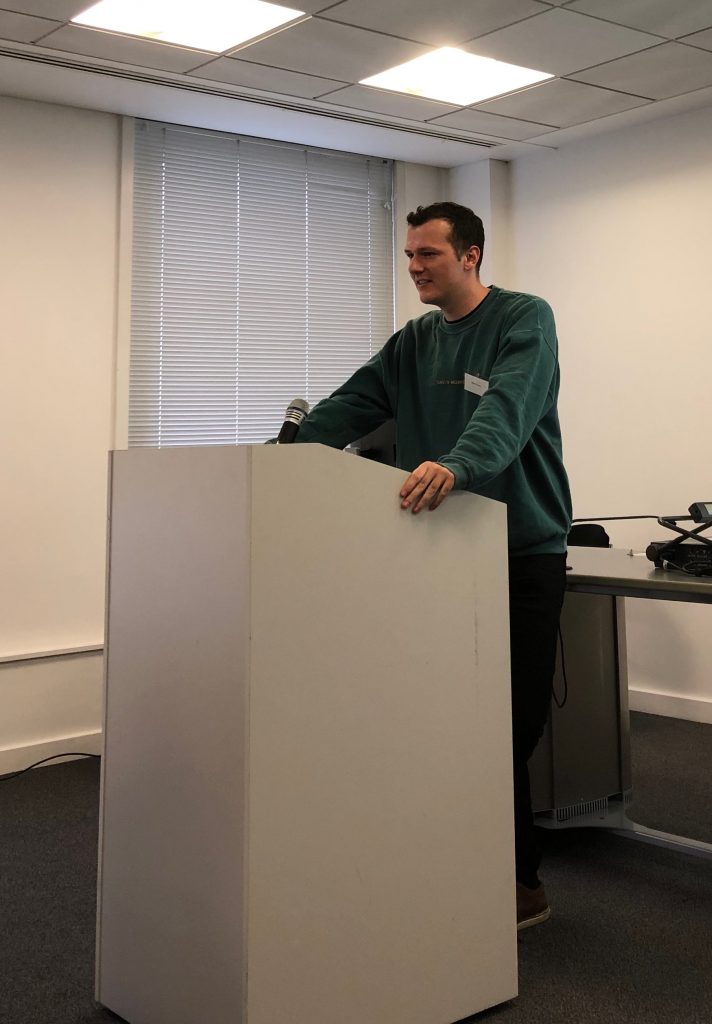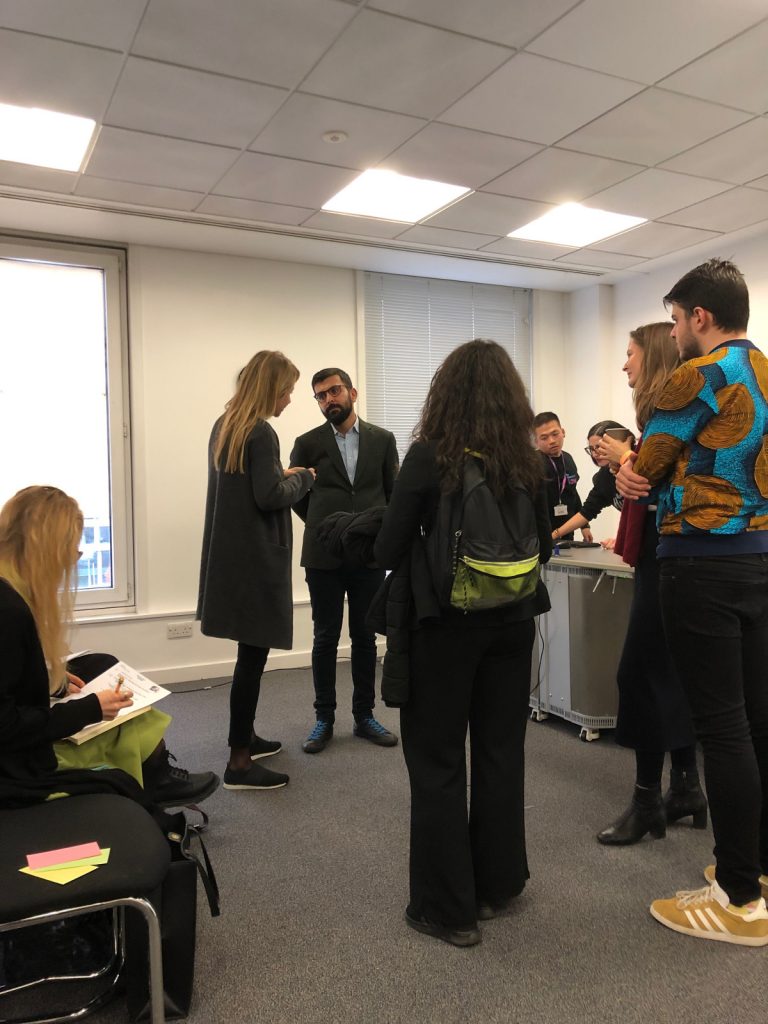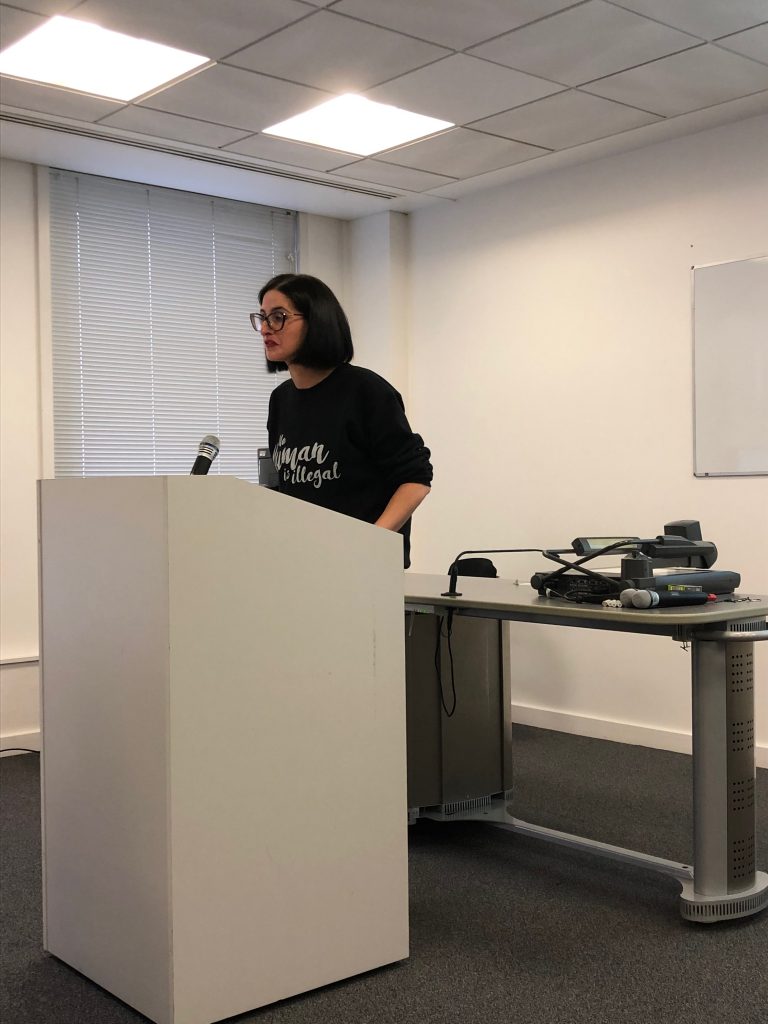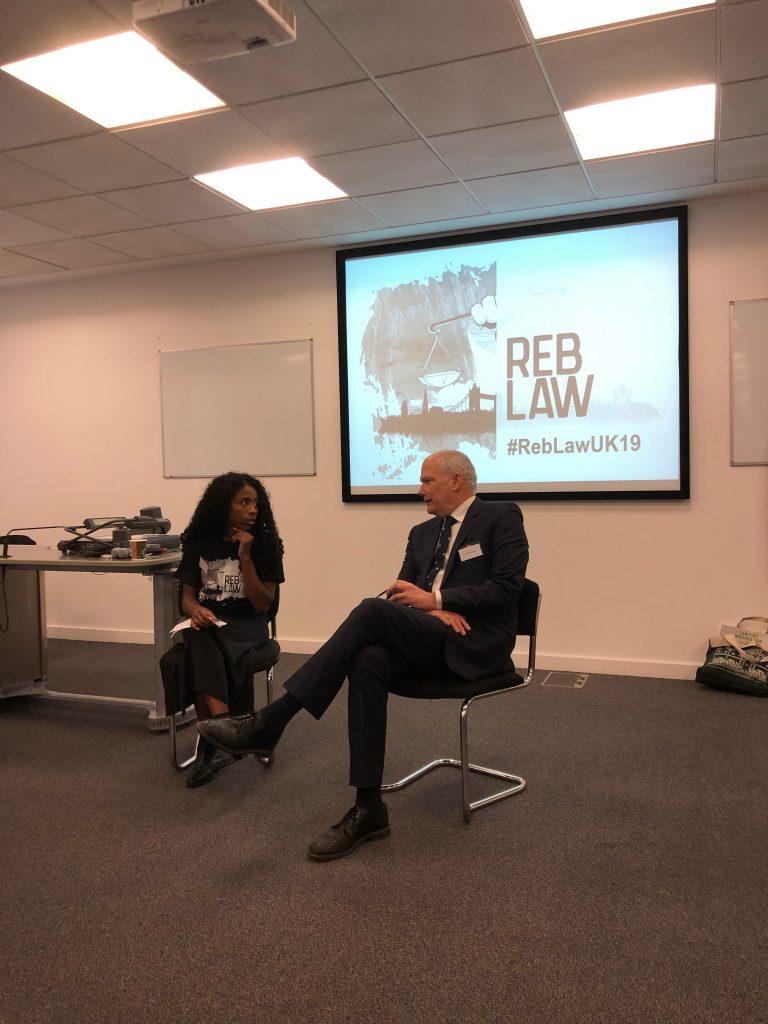The RebLaw UK Conference, hosted by the University of Law, is centered around the idea of bringing open-minded and passionate people from the legal field together to learn about and promote the idea of rebellious lawyering. Gerald P. Lopez coined the term in his book Rebellious Lawyering: One Chicano’s Vision of Progressive Law Practice. Lopez states that rebellious lawyering is simply the idea that the law should be used to serve underrepresented individuals in everyday practice. Lopez’s ideals have been transplanted to the UK and are at the centre of the two-day conference. RebLaw is driven by the desire to use law in a holistic manner in order to protect the most vulnerable individuals in society.

Ollie Persey is currently a barrister at the Public Law Project but was instrumental in bringing the conference to the UK.
When asked why the conference is important, Persey stated, “this conference tries to bring together communities of academics, people with skills, people with life experience, to sort of coalesce, collaborate, and bring about a movement for using the law” to initiate social change.
It is a chance for all levels of the legal professional to interact and learn about various practices of rebellious lawyering.
Satbir Singh opened the conference and emphasised how crucial rebellious lawyers are in his line of work; he is currently the chief executive of the Joint Council for the Welfare of Immigrants. JCWI offers advice to over 2,000 individuals who are struggling with the process of emigrating to the UK. Through the complex case work, Singh stated that “the law is always the first line of defence.”

Singh shared stories of the many individuals and families he has worked with who have suffered an injustice at the hands of the Home Office.
It is clear to him that “injustice isn’t random” but it is a systematic problem that does the most damage to the most vulnerable individuals. But Singh believes that injustice can be undone if approached with a threefold attack: rebellious lawyering and advocates at each level.
He went on to outline these three steps: that injustice can be defeated if the individual is liberated, the injustice is challenged in the court system, and there is a policy-level understanding of how to replace inept legislation.
Rebellious lawyering means that lawyers take a proactive approach to help identify inequality and find solutions.

The rest of the sessions served to reinforce Singh’s point that the law can, and should be used proactively to serve vulnerable individuals. One of the main sessions brought together several organisations to discuss what risks the new EU Settlement Scheme poses for certain people.
Nicole Masri from Rights of Women outlined how that organisation is working to protect domestic abuse victims who struggle with the scheme. She said that “it’s really important that people access advice” because they are working hard to provide as much support as possible. But they do not stop at just offering legal advice; Masri is determined to educate others and persuade legislators towards better regulations. Ruth Mercer from the Southwark Law Centre discussed that many rough sleepers and homeless individuals are struggling to provide the correct paperwork or access the online applications for the scheme. Her team is working to investigate each case to collect as much identification paperwork as possible for the application. Each of these organisations has identified a flaw in the law and is working to simplify the process for at-risk individuals.

But the idea of rebellious lawyering is not limited to issues of immigration law. Edward McGowan spoke about how a different approach to the criminal justice system can make a significant impact.
McGowan is now at APPEAL but spent twenty-five years at the Bronx Defenders, developing the model of holistic defence. McGowan outlined that “when a person gets arrested, they have more than just a criminal problem on their hands.” A criminal case can trigger issues that ripple across their life. The Bronx Defenders recognized that gap and started addressing cases as a team, with lawyers specialising not just in criminal law, but also allowing the individual access to immigration or family attorneys. The key message was that empathy was crucial. They were able to provide a better criminal defence if they were able to see the individual as a whole. McGowan emphasising that if anyone wants to provide a successful defence, you must:
“…represent the person, not the case.”
Dr Laura Janes held a similar belief to McGowan and stated that she “developed her practice around her client’s needs.” She is the Legal Director of the Howard League for Penal Reform and deeply believes that every lawyer should “think about legal problems from a human perspective.” Her work with prison reform is driven by the experience of individuals, the human consequences of the penal system.
Law is, after all, driven by the individuals. All of the people and organizations that attended RebLaw are trying to refocus the legal profession back to the individual. This is only a brief description of the wide range of practice areas represented at the conference. It is a jam-packed two days that I would highly recommend attending. It is important for students to interact with and be inspired by proactive professionals.

If that’s not enough of a sell, it is also a great networking opportunity because they have experts ranging from animal rights to privacy law. It is a great chance to see that a rebellious lawyer is just a lawyer who is driven by the desire to be better.
Thanks to Emily Wolf for this excellent review of the Upjohn Lecture.
Emily is a second year LLB student who has experience in private business law, federal appellate law, and governmental legislative law.
She is most interested in writing public interest and advocacy pieces. Emily is a member of the Lawbore journalist team for 2019-20.

